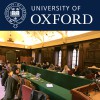Corruption: A new Public International Law norm?
In particular, its prevention has been the subject of numerous treaties and soft law instruments, and it has been wielded as a defence to both investment treaty claims and commercial contract claims (which in turn raises questions of private international law). Yet the source and theoretical underpinnings of a supposed international norm prohibiting corruption remains opaque. Tribunals and commentators make reference to “international public policy,” but the question remains whether the supposed prohibition of corruption is a rule of international law, and where it features in the hierarchy of norms. We propose to examine (i) the current “state of play” (i.e., the various ways in which international law addresses and reprimands corruption), (ii) whether Public International Law prohibits corruption and, if so, the source and status of that norm; and (iii) what the future of international anti-corruption efforts might look like.
Bio:
Samantha Rowe is International Counsel, and Ciara Murphy is an associate, in Debevoise & Plimpton LLP’s international dispute resolution group. Their practice focuses on international arbitration and public international law. They represent both sovereign states and companies in international investment and commercial arbitrations across a range of sectors.
Ms. Rowe received her B.A. (Hons.) with First Class Honors in English Law and French Law from the University of Oxford, Wadham College, a Certificat Supérieur de Droit Français from the Université de Paris II Panthéon-Assas, and an LL.M. in International Legal Studies from New York University.
Prior to joining Debevoise, Ms Murphy was a law clerk to Judge Greenwood and Judge Yusuf at the International Court of Justice. She holds an LLB from Trinity College Dublin, an LLM in EU Law from the College of Europe and an LLM in international and comparative legal practice from the University of Michigan.




